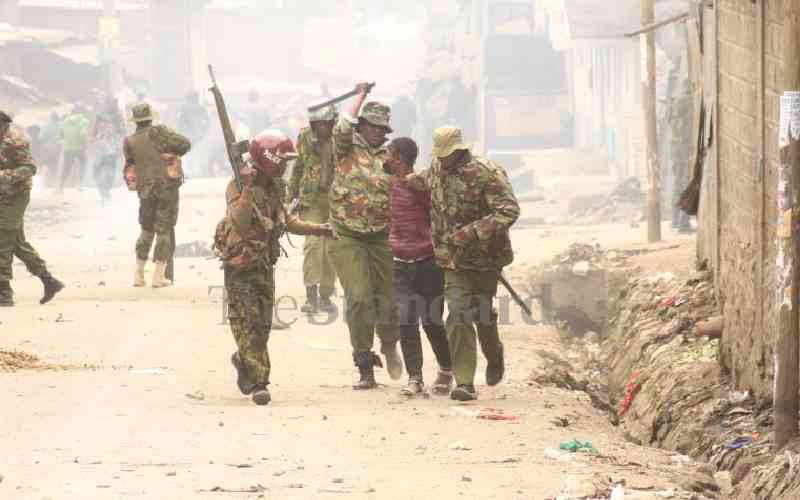×
The Standard e-Paper
Join Thousands Daily

Kenyans yet again find themselves between a rock and a hard place over the high cost of living as political rivalry between Kenya Kwanza and Azimio intensifies over anti-government protests.
Azimio's resolve to continue with protests on Wednesday, will leave the hustler either ducking bullets and teargas to push the government to lower the cost of living or cower under fear of exercising their democratic right over violent police crackdown on the opposition.